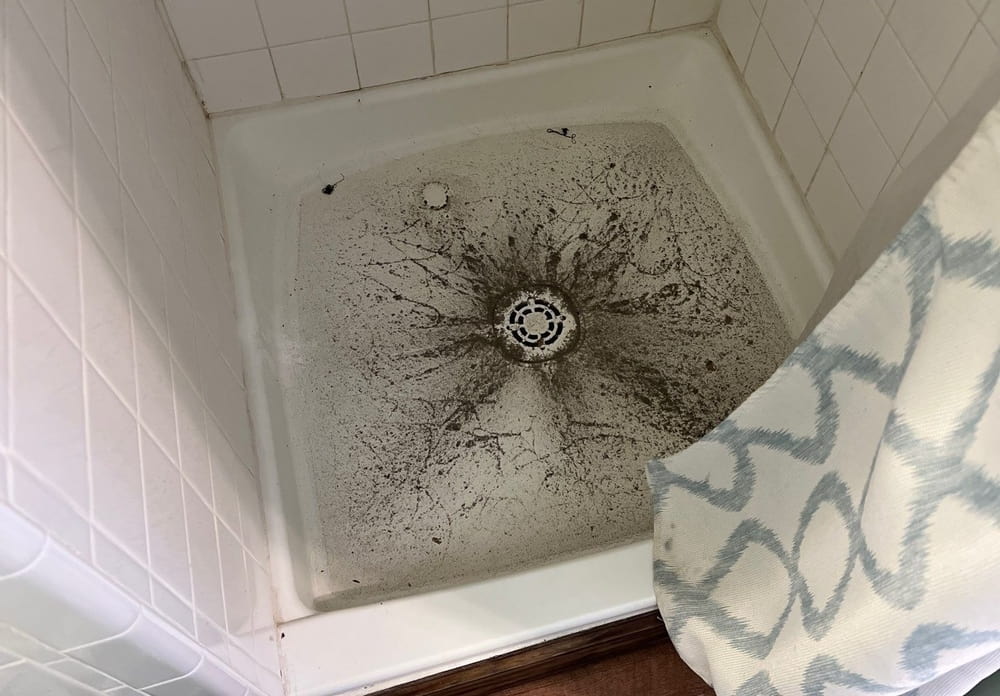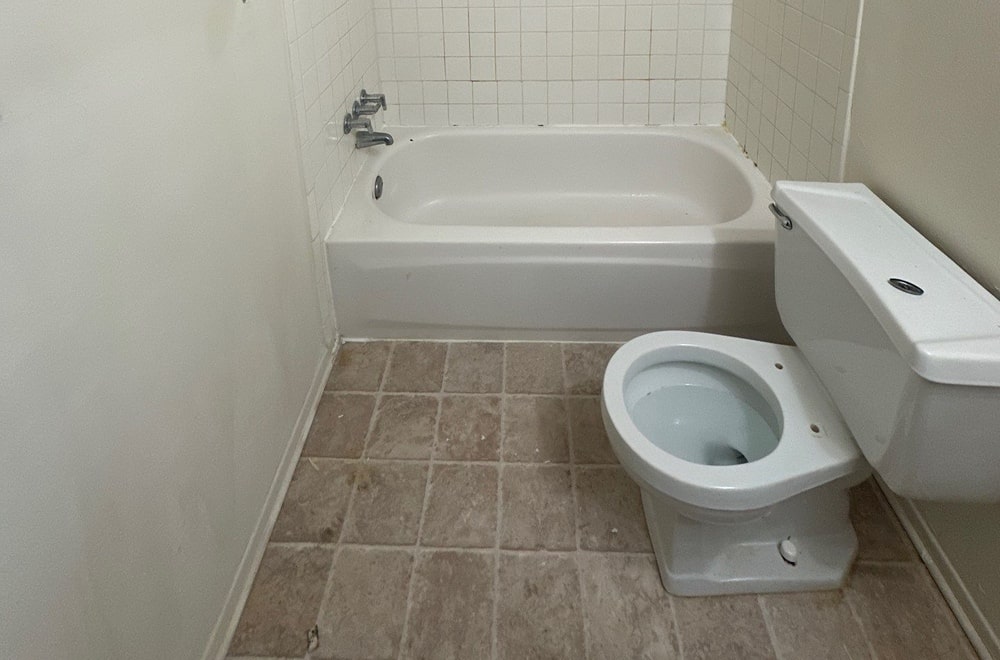
Eliminate the unpleasant mystery of sewer smells in your home with our Howell sewer cleaning experts. If you’ve ever been hit by that unwanted odor, whether in your bathroom, basement, or kitchen sink, you know how frustrating and embarrassing it can be. These smells don’t just disrupt your comfort; they can also be a sign of underlying issues that need immediate attention. Our expert team in Howell is equipped to locate and eliminate the root cause of these sewer odors, ensuring your home remains fresh, clean, and inviting. Don’t let sewer smells linger—trust us to restore your home’s atmosphere to its best condition.
Common Sources of Sewer Smells
1. Bathroom:
A sewer smell in the bathroom is often due to issues with the plumbing system. It could be a dry P-trap, the U-shaped pipe under the sink that traps water to prevent sewer gases from entering your home. If the water in the P-trap evaporates, sewer gases can escape. Other possible causes include clogged vents, leaky seals around the toilet, or a blocked drain.
2. Basement:
The sewer smell in the basement typically arises from floor drains or sump pits. These areas can dry out over time, allowing sewer gases to enter the basement. Additionally, cracks in the foundation or poorly sealed pipes can contribute to the odor. Mold and mildew growth due to moisture can also emit a musty smell that mixes sewer gases, exacerbating the problem.
3. Kitchen Sink:
A sewer smell from the kitchen sink usually indicates a drain or vent system clog. Food particles, grease, and other debris can accumulate in the pipes, leading to blockages and the subsequent release of foul odors. Additionally, a malfunctioning garbage disposal can contribute to the smell if it grins food waste properly.
Steps to Eliminate Sewer Smells

1. Identify the Source:
Before you can address the sewer smell in your house, you must locate the source. Check all the possible areas where the odor is strongest, such as the bathroom, basement, or kitchen sink. Look for moisture, mold, or standing water signs indicating plumbing issues.
2. Fix Dry P-Traps:
If you suspect dry P-traps cause the sewer smell in the bathroom or kitchen sink, simply running water down the drain can help. Pour a few cups of water into the sink or floor drain to refill the trap and block the gases from escaping. Consider adding a tablespoon of mineral oil for drains infrequently used to slow evaporation.
3. Clean the Drains:
Clogged drains are a common source of sewer smell in houses. To clean your drains regularly, use a mixture of baking soda and vinegar, followed by hot water. This natural solution can help break down any buildup and eliminate odors. For more stubborn clogs, a plumbing snake or auger might be necessary.
4. Inspect and Repair Vent Pipes:
Blocked or damaged vent pipes can lead to a buildup of sewer gases. Inspect your vent pipes for any obstructions, such as leaves or debris, and clear them out. If you find any cracks or damage, it’s best to call a professional to repair or replace the pipes to ensure they function correctly.
5. Seal Leaky Toilets:
A leaky toilet can be a significant source of sewer smell in the house. Check the seals around the toilet’s base for any cracks or damage. If you notice any issues, replace the wax ring or seal to prevent gases from escaping.
6. Address Basement Issues:
For a sewer smell in the basement, ensure that floor drains and sump pits are regularly filled with water. If there are any cracks in the foundation, seal them properly to prevent sewer gases from seeping in. Additionally, a dehumidifier can control moisture levels and inhibit mold growth.
7. Maintain Your Garbage Disposal:
A malfunctioning garbage disposal can cause a sewer smell in the kitchen sink. Regularly clean the disposal by grinding ice cubes and citrus peels to remove food particles and freshen the unit. Avoid putting fibrous or starchy foods down the disposal, as they can create clogs.
Preventing Future Sewer Smells
1. Regular Maintenance:
Routine plumbing system maintenance is key to preventing sewer smells in the house. Schedule regular inspections with a professional plumber to identify and address potential issues before they become major problems. As part of this maintenance, consider descaling your pipes to remove mineral buildup and prevent blockages.
2. Use Enzyme Cleaners:
Enzyme cleaners can help keep drains clear by breaking down organic matter. Use them monthly to maintain a free-flowing plumbing system and reduce the risk of odors.
3. Monitor Moisture Levels:
High humidity and moisture levels can exacerbate sewer odors. Use dehumidifiers in areas prone to moisture, such as the basement, and ensure proper ventilation.
Need Help with Sewer Smells? Contact Us!
Dealing with sewer smell in the house can be challenging, but you don’t have to face it alone. At Brock Mechanical, we specialize in identifying and fixing sewer smell issues to keep your home fresh and comfortable. Our experienced team is ready to help you with all your plumbing needs, providing reliable and efficient solutions. If you’re struggling with sewer smell in the bathroom, basement, or kitchen sink, give us a call today. We’re here to ensure your home stays odor-free and your plumbing system runs smoothly.


